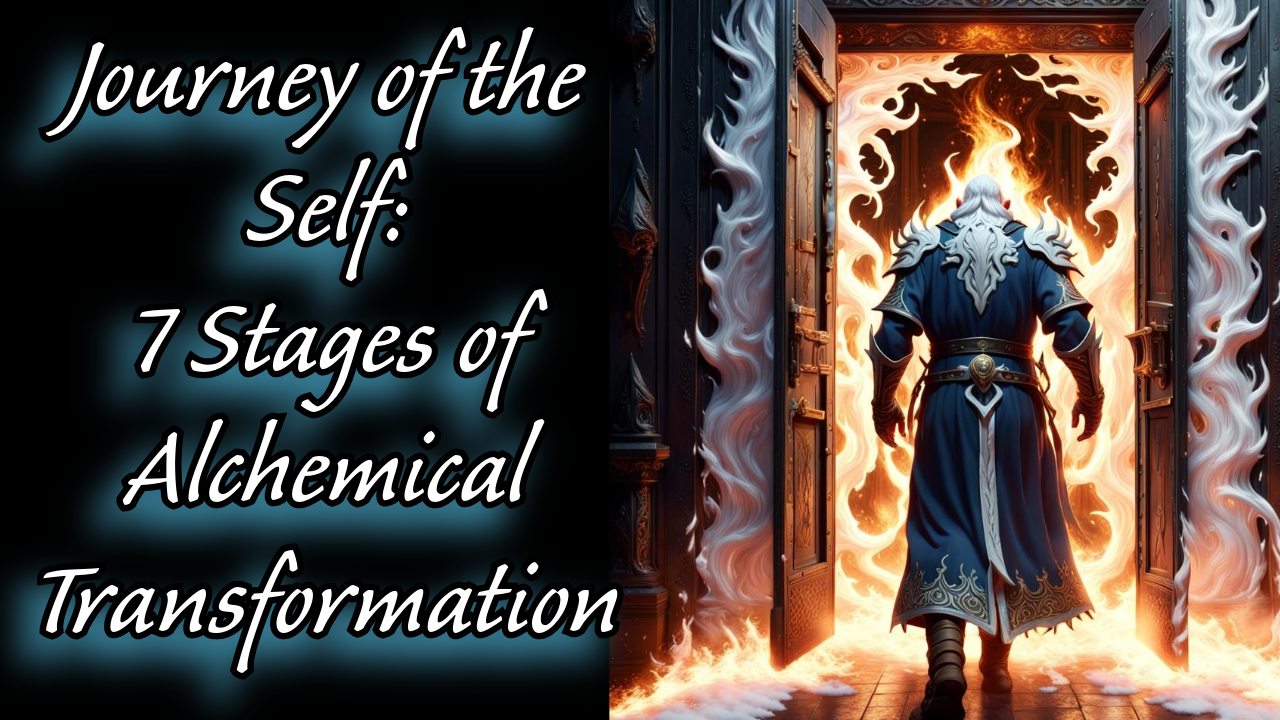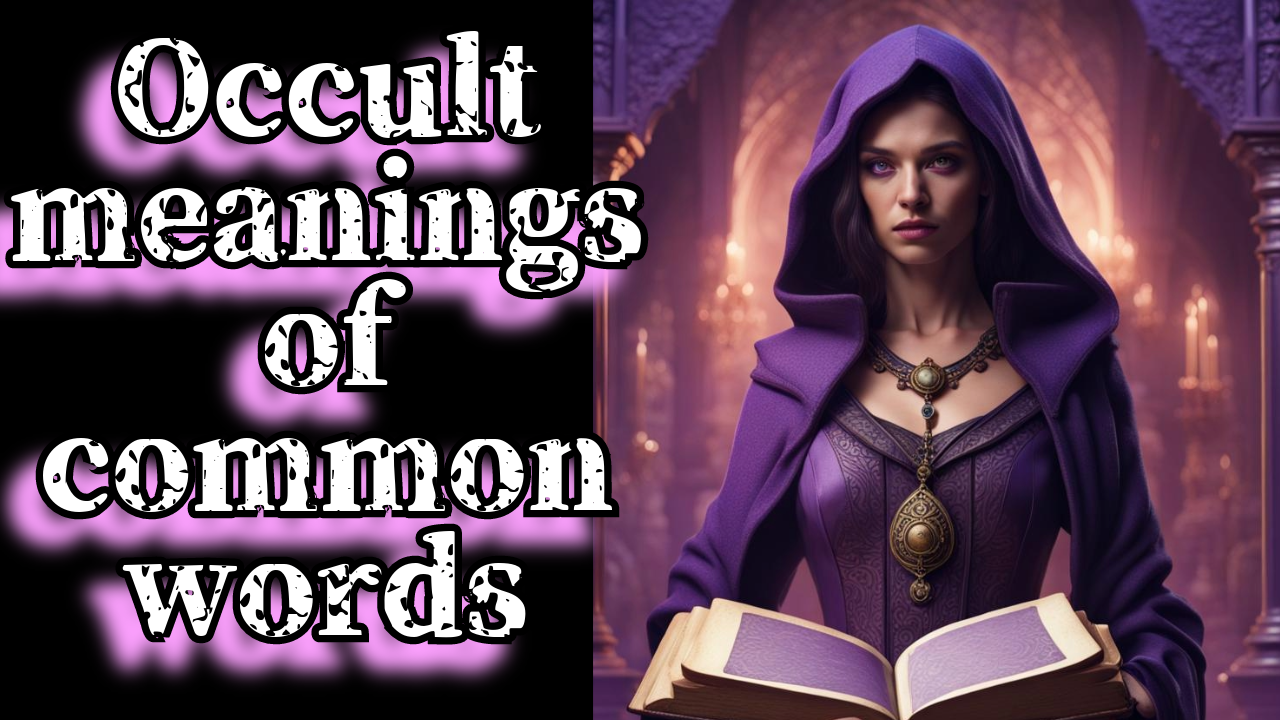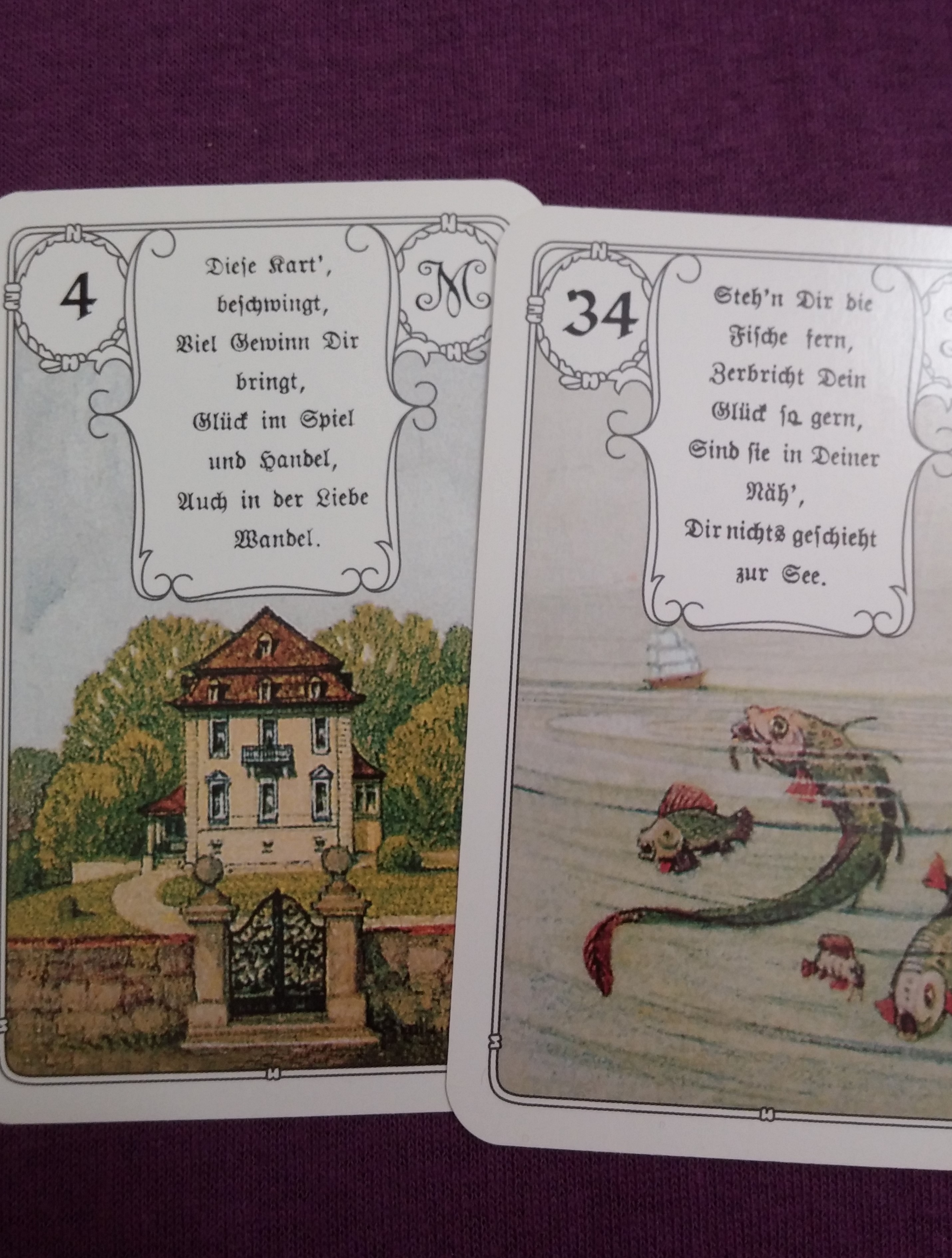
The pursuit of self-transformation has been a timeless quest for individuals seeking to unlock their inner potential and achieve a higher state of being. Throughout history, diverse methodologies have emerged to guide us on the path to self realization.
In yoga, we have enlightenment through awakening the kundalini, activating each of the 7 chakras and the flow of infinite energy. In the Jewish tradition we have the Kabbalah, the mystic tree of life, with the 10 sephiras – a path to higher knowledge, wisdom and obtaining the highest level of spirituality.
And in the western culture, we have the Hermetic Alchemists, who stand out for their unique approach to personal evolution through inner alchemy. Drawing inspiration from various mystical traditions and philosophical teachings, these alchemists developed a comprehensive system comprising of seven main stages that promised the seeker a profound metamorphosis of the self.
In this video, we’ll have a brief look at The Journey of Self-Transformation through Inner Alchemy according to the Hermetic Alchemists. This short essay will cover the 7 stages of Alchemy and begin to give the basic outline for a more profound and individual in depth study.
- Calcination: The Crucible of Fire
The journey of inner alchemy begins with calcination, a stage associated with the element of Fire. In Alchemy base metals are subjected to intense heat to remove impurities and reveal their true essence. Likewise, in an individual life this stage represents the burning away of impurities and the breaking down of old structures, paving the way for renewal. It represents the purification of the soul through trials and tribulations., individuals must confront their own flaws and limitations.
Calcination reflects personal challenges. Consider a person confronting the crucible of hardship—perhaps a tumultuous life event or a profound crisis, such as family trauma like a divorce or death, the breakup of a first love, or an accident resulting in physical, mental or emotional handicaps. The intense heat represents the emotional and psychological strain, forcing a breakdown of old habits and thought patterns. Navigating these tribulations requires resilience and a willingness to confront one’s vulnerabilities. Through this transformative ordeal, both in the crucible of metallurgy and personal struggles, emerges the potential for purification and the birth of something new and refined.
The perceived worst experience must be confronted, broken down and purified to come out anew.
- Dissolution: Flowing with Water
Following calcination, the alchemist encounters dissolution, often represented by water. Just as solid substances dissolve in water, individuals must let go of rigid beliefs and preconceptions to adapt to the fluidity of life. This stage involves the disintegration of the ego and the surrender to change. The emotional turbulence and tears experienced during this period serve as a metaphorical dissolution, breaking down emotional barriers and allowing for the emergence of a more compassionate and empathetic self.
Dissolution, therefore, is like the caterpillar’s journey into the chrysalis. At first, the caterpillar feels an emotional tug, sensing that it’s time for a profound change. It surrenders to this feeling, letting go of its known world as it enters the chrysalis.
During this stage, emotions may swirl within the caterpillar, a mix of uncertainty, excitement, and perhaps a bit of fear. It’s akin to the way a person might feel when faced with major life changes, like starting high school or moving to a new place. The caterpillar doesn’t resist the transformation; instead, it surrenders to the natural course of its existence.
In the chrysalis, the caterpillar undergoes a process of dissolution, where its old form dissolves into a kind of “primordial soup.” Similarly, in life, we sometimes need to let go of familiar patterns and embrace change, even if it feels uncomfortable. This stage is about trusting the process and allowing ourselves to transform into something new and beautiful.
- Separation: Distilling the Essence
In the separation stage, the alchemist refines the components obtained through calcination and dissolution. Corresponding to the element of Air, this stage requires discernment and introspection. It requires the ability to distinguish between the essential and the superfluous. Just as a skilled alchemist separates precious metals from impurities, individuals must identify and prioritize their values.
For example, imagine making chocolate chip cookies. In the third stage of alchemy, separation, think of it like the moment when you mix the cookie dough. At first, you have a gooey, messy mixture of ingredients—flour, butter, sugar, and chocolate chips all blended together. But then comes the separation. You scoop out portions of the dough and place them on a baking sheet. Each cookie takes its own form, distinct from the others. It’s like magic: from one uniform mass, you create individual, unique cookies.
Similarly, in alchemy, the third stage is about breaking down a combined substance into its distinct components. This process allows you to understand and appreciate the individual elements that were initially mixed together. So, just as you separate cookie dough to reveal the distinct cookies, alchemists sought to separate and understand the essential components of substances in their quest for knowledge and transformation.
We can also liken it to an example of an 18-year-old, that is entering the workforce or pursuing higher education. This may demand the separation of genuine passions from external influences which will allow the individual to distill their true essence and purpose.
- Conjunction: The Sacred Union
The fourth stage, Conjunction, associated with the element of Earth, is the culmination of the first three transformative process, marking the stage of unity and integration. It is the integration of opposites, a harmonious union that creates a balanced and unified self. This stage requires reconciling conflicting aspects of one’s personality, embracing both light and shadow, and finding equilibrium.
Consider for a moment a chef crafting a gourmet dish: after meticulously preparing different ingredients (represented by the first three stages), the fourth stage mirrors the harmonious fusion of flavors, where each element contributes to the overall balance and richness of the final creation.
Similarly, in personal growth, reaching this alchemical stage involves integrating diverse aspects of oneself – strengths, weaknesses, experiences – into a cohesive and balanced whole. It’s akin to a person finding their inner equilibrium, where conflicting facets of their identity unite to form a more complete and self-aware individual. This alchemical conjunction mirrors life’s complexity, where unity and equilibrium emerge from embracing the entirety of one’s journey, resulting in a newfound sense of purpose and understanding.
Conjunction represents the synthesis of opposites, integration of light and dark, positive and negative, strong and weak, good and bad, and fostering a sense of wholeness and completeness.
- Fermentation: The Transformative Process
Fermentation, corresponding to the element of Fire, is the stage of gestation and maturation, where the alchemist patiently allows the transformative processes to unfold. It involves the incubation and maturation of newfound insights and wisdom and is essential for the refinement of the self, fostering growth and development over time.
Ponder if you will that you’re an aspiring musician working on your first album. The initial spark of creativity (calcination) led to raw musical ideas. As you refine your sound (dissolution), you mix and experiment with various elements, like different instruments and styles. Now, in the fermentation stage, you allow these elements to blend and mature over time, just like a fine wine ages. This incubation period is crucial – it’s when your musical ideas marinate and transform organically. You may face challenges, encounter new influences, and experience personal growth.
Consider this phase as your musical compost heap. The unique blend of experiences, setbacks, and inspirations ferment together, creating a richer, more complex artistic expression. The process of fermentation allows your music to evolve naturally, transcending initial expectations. Eventually, the transformed and matured album emerges, a harmonious fusion of your original vision and the unforeseen influences that shaped it during the transformative journey. This alchemical approach to music-making mirrors the ancient process, demonstrating that creative evolution involves time, patience, and the willingness to let ideas ferment into something greater than the sum of their parts.
- Distillation: The Refinement of Spirit
Distillation, linked to the element of Water, signifies the refinement of spirit and the purification of the soul. It involves the purification and concentration of the essential elements obtained through the preceding stages and requires introspection and self-discovery, extracting the pure essence of one’s being.
In this stage, the alchemist separates the pure from the impure, seeking clarity and heightened awareness.
We can liken the sixth stage of distillation to making a cup of tea. At the beginning, you have a mixture of tea leaves and water—a complex combination of flavors and compounds. The process of brewing represents the initial stages of alchemical transformation. As the water heats up, it begins to evaporate, carrying volatile compounds from the tea leaves with it.
Now, think of the rising steam as the distillation process. The vapor rises, leaving behind impurities and less essential elements.
This is similar to how alchemists seek to separate the pure from the impure. The steam is then condensed back into liquid form, akin to the refined essence of the tea. What you’re left with is a distilled liquid, more concentrated and potent in flavor—representing the culmination of the distillation stage in alchemy.
In terms of individuals, you might have a young entrepreneur, who engages in distillation as he reflects on his life’s purpose. By distilling his passions and strengths, he identifies a business venture that aligns with his core values, leading to both personal fulfillment and professional success
- Coagulation: The Manifestation of the Transformed Self
The final stage of inner alchemy, coagulation, is associated with the element of Earth and represents the solidification and manifestation of the transformed self. This stage involves the integration of newfound wisdom and a sense of wholeness, resulting in a stable and evolved individual.
Let us go back to our chef in the fourth stage. Our skilled chef is crafting an exquisite dish. At first, disparate ingredients, like raw vegetables and meat, represent the chaotic elements of life. In calcination, the chef, like an adept alchemist, skillfully applies heat and various techniques, transforming the ingredients into a chaotic blend—symbolizing dissolution. As the process unfolds, the chef’s mastery becomes apparent. Each element harmonizes as flavors merge, much like the alchemical process of conjunction. The dish evolves, mirroring the transformative journey.
In the final alchemical stage of coagulation, the chef achieves perfection. The once-disparate elements now embody a unified, sublime creation—the dish’s essence transcends its individual components. Similarly, in life’s journey, coagulation manifests as personal growth and self-realization. The chaos of experiences and challenges meld into a cohesive, enriched existence. The chef’s dish and the alchemist’s quest share a profound truth: through skilled transformation, disparate elements can coalesce into a harmonious and evolved whole. This is the essence of coagulation, the final stage of the alchemical journey.
In conclusion, the journey of self-transformation through inner alchemy, as elucidated by the Hermetic Alchemists, unfolds as a profound and cyclical process. Each stage, with its elemental associations and life examples, guides the seeker toward a deeper understanding of the self and the universe. The wisdom embedded in these alchemical stages serves as a timeless guide for unlocking the secrets of personal evolution and transformation. Just as the alchemist transforms base metals into gold, the seeker transforms the raw materials of their life experiences into the gold of self-realization and fulfillment.
Where are you in your alchemical journey? What personal experiences, either positive or negative, have you had on the road to self-discovery? We’d love to hear your thoughts in the comments below and share with anyone interested in learning more!
Video version here:
Interesting sources, additional info, images, credits, attributions and other points of views here:
https://www.art10zen.com/inner-alchemy-of-self-transformation-part-1-calcination/
https://www.chabad.org/library/article_cdo/aid/170308/jewish/What-is-Kabbalah.htm
https://quiabsurdum.com/the-seven-stages-of-alchemy/

